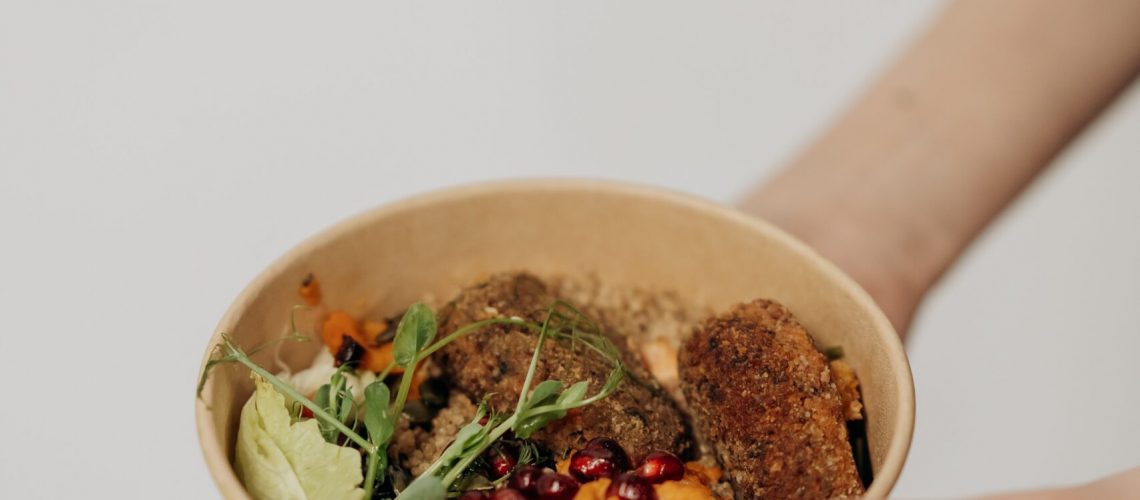The food choices people make really can impact moods, but this can be a negative cycle as poor moods can lead to poorer food choices! For example, when a person experiences short term stress, this typically leads to a REDUCED appetite. This is because the body goes into a state of ‘fight or flight’ and the adrenal glands pump out adrenaline. However, with prolonged stress cortisol (the ‘stress hormone’) is released. Cortisol INCREASES appetite. When a person is constantly in a state of stress cortisol can stay elevated, playing havoc on a person’s appetite. People tend to reach for the most ‘comforting’ or palatable foods which are often high in sugar or fat, or both. Chronic stress has therefore been linked with weight gain and obesity. Trying to identify physical versus emotional hunger is a good starting point. Physical hunger builds gradually whereas emotional hunger tends to come on suddenly. Here are 4 nutrition tips that can help you to keep moods on an even keel.
- Don’t skip meals
Skipping meals or leaving long gaps in between meals can lead to a drop in blood sugar which can make you feel irritable, tired, and cranky. Skipping breakfast can lead to that mid-morning energy dip which for many people results in snacking on sugary treat foods or consuming excess amounts of caffeine. Eating every 3-4 hours will help you to keep blood sugar levels steady. Having a balanced plate that contains some carbohydrate, protein, and some healthy fats, will provide you with the nutrients that the body needs to feel energised. Choose carbohydrates that release energy slowly such as oats, beans, sweet potato. Including some fat in the diet is important as fat helps absorb fat soluble vitamins (A, D, E, K) and the brain needs fats to keep it functioning well. Include foods like oily fish, nuts, seeds, olive oil, avocados, milk, and eggs.
- Keep the gut happy
Have you ever felt stressed and had a dicky tummy at the same time? The gut and the brain are connected via a nerve called the vagus nerve which sends signals in both directions. When a person feels stressed, this can lead to the gut slowing down or speeding up, hence why you might need to use the loo when stressed. Around 90% of the body’s serotonin is produced in the gut. Serotonin is one of the key hormones that helps stabilise moods. And so, it makes sense to keep the gut happy. Healthy gut foods include fibrous foods like beans, oats, lentils and fruit and vegetables. Live yoghurts and other probiotics can also be beneficial to gut health.
- Eat enough protein
Protein is made up of amino acids which make up the chemicals in the brain. These brain chemicals regulate feelings and thoughts. Protein also helps to keep you feeling fuller for longer as it’s digested slowly. Protein foods include animal sources such as lean meat, fish, eggs and dairy, and plant sources such as beans, nuts, and soya products. Include a portion of protein with each main meal. This should make up around a quarter of the plate.
- Stay hydrated
Hydration is often overlooked when it comes to moods and energy. About 75 percent of the brain is made up of water and so even as little as 2% dehydration can have a negative impact on brain function, energy levels, and exercise performance. Dehydration can result in feeling lethargic, having difficulty concentrating and poorer moods. Once the body is dehydrated, this can be mistaken for feelings of hunger which may then lead to increased snacking. Start the day with a big glass of water with breakfast. Leaving a glass out the night before can help nudge you to do this.
Ann-Marie is a registered Sport and Exercise Nutritionist. If you would like to learn more about this topic or any other, please get in touch.



